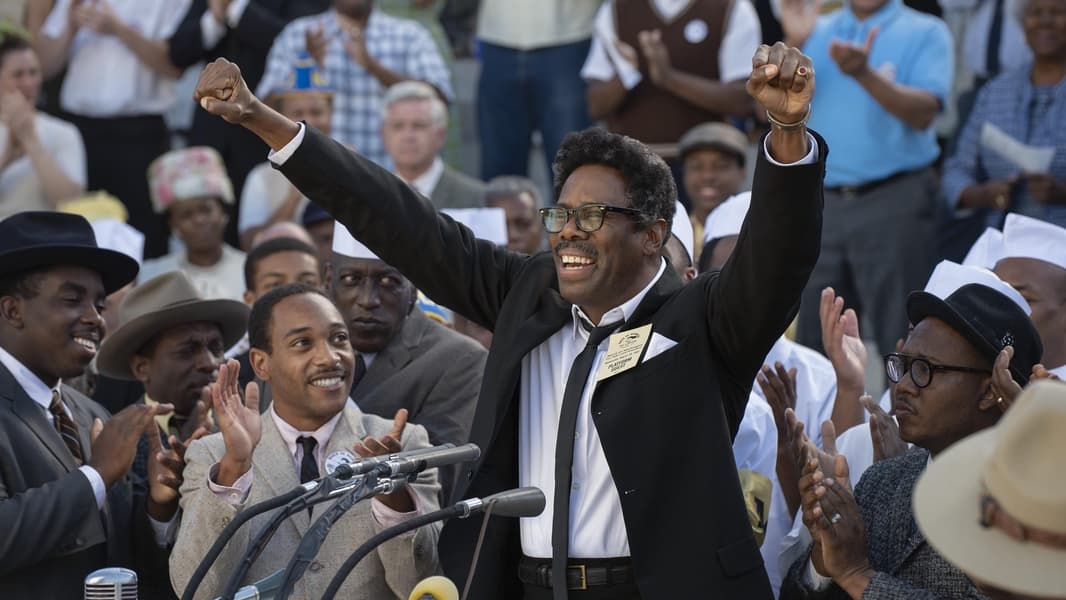Tropic Sprockets / Rustin
By Ian Brockway
Director George C. Wolfe brings the 1963 March on Washington alive in “Rustin,” which underscores the efforts of groundbreaking activist Bayard Rustin.
The film is detailed and thorough, featuring a strong cast led by Colman Domingo. The film is chock full of details and group in-fighting but the spirit of the film is with Rustin himself and his emotional struggle as a visionary, an igniter, and a gay man.
In early 1963, Rustin started a concept for a massive protest in Washington DC to protest the unholy arc of segregation. At that time, the white population was infused with a spiritual demonic hatred of the black population, a hatred nationalized in our country from 1865 to 1965. Black people were lynched and beaten, tortured, and refused as patrons. Emmet Till was lynched in 1955.
Bayard Rustin wanted to overwhelm Washington in an unapologetically nonviolent way in the manner of Gandhi, where the sheer volume of people assembled would force the president and his government to take notice and change for the betterment of society as well as all minorities.
Rustin knew he could not accomplish this alone. He needed the support and charisma of Dr. Martin Luther King.
Because of Rustin’s uncompromising charge, and his homosexuality, he faces pushback from NAACP members Roy Wilkins (Chris Rock) and congressman Adam Clayton Powell (Jeffrey Wright).
Rustin is undaunted.
This film zings with Colman Domingo, who illustrates Bayard’s personal worry as an openly gay man in the midst of political fighting. We see his gravity as well as his joy.
In this film, Bayard does not see a host of insurmountable sorrows, instead all events become celebrational puzzles to be worked through and solved. Bayard is a supercharged dynamo with missing teeth here, and he was surely a dynamo in reality.
Bayard Rustin’s sexual orientation is not central to the film, yet it is inclusive and honest and does not shy away from the subject. It is a very real side of Rustin’s self.
This film shows Rustin as a humble and celebratory man of action. He was one side of the nonviolent prism, cut by Gandhi and Martin Luther King. Bayard Rustin was also a dynamic fireball who worked behind the scene. He could be both tranquil and tempestuous. After all, human life was at stake.
“Rustin” is a portrait of a previously unsung gay man of action, striving for equality and goodness, before Harvey Milk in San Francisco.
Write Ian at [email protected]
[livemarket market_name="KONK Life LiveMarket" limit=3 category=“” show_signup=0 show_more=0]

No Comment